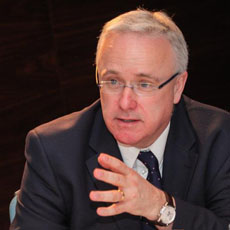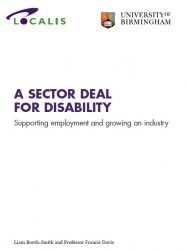post by Kaleem Hussain, Honorary Fellow Embed from Getty Images The UK Government (MHCLG) has recently appointed Colin Bloom as the Faith Engagement Adviser (FEA) whose remit is to lead a review into how best the government should engage with faith groups in England. The FEA will also be looking to make recommendations on how … Continue reading “Keep the Faith: The Importance of Faith Literacy”
Category: Public policy
The Bishop of Durham, The MP for Devizes and the Future of ‘Christian’ Social Welfare
by Professor Francis Davis The other day, the Bishop of Durham expressed concerns that for poor families the time lag between applying for social security payments and receiving them is so great that hardship is enhanced. As though listening the government announced that the roll out of its flagship Universal Credit scheme was being … Continue reading “The Bishop of Durham, The MP for Devizes and the Future of ‘Christian’ Social Welfare”
Asylum Seeker Conversions: misconceptions inherent in the public response
by Dr Grace Milton, Research Fellow, Edward Cadbury Centre In the UK, religious conversion is generally considered to be a private matter. Citizens have the legal right to hold and manifest religious beliefs[1]without fear of intervention or public criticism. However, there are occasions when conversion, and its associated rituals, become a matter of intense public … Continue reading “Asylum Seeker Conversions: misconceptions inherent in the public response”
Dr Iqtidar Cheema honoured by California State Senate
Cadbury Centre Honorary Fellow Dr Iqtidar Cheema has been recently formally recognised by the State Senate of California for his services to global advocacy of human rights, religious freedom and interfaith. State Senator Bob Wieckowski on behalf of California State Senate confirmed the honour upon Dr Cheema, who is currently a member of the UN … Continue reading “Dr Iqtidar Cheema honoured by California State Senate”
The Equality and Human Rights Commission is at risk of playing down the role of disabled people
Disabled people have much to give to society. So why is the EHRC considering the abolishment of its Disability Commissioner?
We do not think of disabled people enough
Speaking this week, the Prime Minister welcomed aspects of the new Taylor Review on Modern Work. But if the Government’s aspiration to build a fairer society that unlocks all of its talents is to be realised, her team now needs to do more thinking as to how some workers, to whom the review pays little attention, can be empowered.
The UK needs a sector deal for disability as part of the government’s industrial strategy
This sector deal should address long standing barriers to the participation
of disabled people in the labour market by offering enhanced support and
incentives to employers, training providers and individuals.
Britain’s disabled workers continue to miss out on jobs due to a lack of tax breaks and incentives for employers
Disabled people would have a better chance to find a job if the government did more to support businesses – by abolishing national insurance contributions of disabled workers and providing incentives to hire workers with disability.
Loving the election?
This article was originally written for the Church Urban Fund blog and published there on May 9, 2017.
Cadbury Centre Honorary Fellow Dr Heather Buckingham writes about the General Election campaign. While the election seems to be dominated by fear, Buckingham suggests that it can be approached in a different way, loving, rather than fearful.
Why do the French fear Islam?
This article was originally published in The Berkley Forum on May 8, 2017. It is based on a talk Professor Cesari gave at the Center for Middle Eastern Studies at Harvard University on May 8, 2017.
Professor Jocelyne Cesari argues that the fear of Islam in France is fuelled by three political and cultural factors: War on Terror, Salafization of Islamic thinking, and French laicite.





